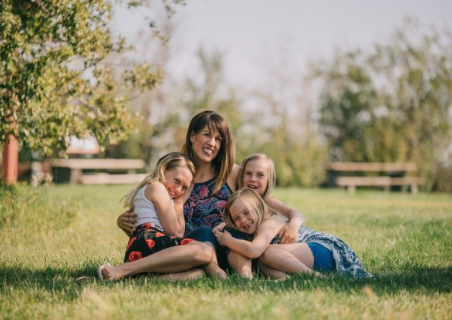Date: Dec 29 2020

In this series we have been focusing on divorce with children at different ages. This post focuses on divorce and children in elementary school. Children at this age will have a better understanding of what divorce means and may have peers with divorced parents.
As with toddlers, children between the ages of 6-12 may have feelings of guilt and feel as if they caused the divorce. Children at this stage are still self-involved and will focus mostly on their role in the divorce. It is most important to let your children know that it is not their fault and that you both still love them and that will not change.
Feelings of Sadness
The most common reaction in children of this age is sadness. They may cry more, throw tantrums and appear emotionally upset. They may also become withdrawn and quiet and lose interest in the activities they use to enjoy. It may become difficult for them to concentrate in school and can show signs of separation anxiety. Physically, the stress may cause stomach aches and headaches and they may want to stay home from school to spend more time with their parents.
To help your child it is important to encourage them to talk about their feelings with you, a therapist, another family member or someone they feel comfortable talking with about it. Also, let their teachers know you are going through a divorce so they can be on alert for any changes in behavior.
Anxiety and Anger
Elementary children tend to worry more about things. They will worry about how their parents are managing, money, living arrangements and being forgotten. You may start to notice signs of anxiety like hair twirling, nail biting, not sleeping or having nightmares. To help a child with anxiety it is important to stick to regular routines and let them know where they will be and which parent they will be with each day. Reassurance and allowing them to express how they are feeling can really help manage anxiety.
Anger is also a common reaction in children. They may show it physically, verbally or emotionally. You may see more complaining and uncooperative behavior. These feelings most likely come from fear of abandonment or if they feel one parent is more responsible, they will likely lash out at them.
The best strategy for children of this age is communication. Express how you are feeling to them and let them talk to you about how they are feeling. A therapist for both of you is extremely beneficial. Be amicable with your ex in front of them and do not say negative things about the other parent to them. At this age, they will feel they have to choose sides or feel divided between the two of you. Both parents need to be reassuring and try and spend as much quality time with the children as possible.
Friends are very important at this age and they may desire to spend more time with them. Allow them time on their own, whether with friends or by themselves. Getting involved in extracurricular activities can help keep their minds occupied and not dwell on the divorce.
Even for adults these changes can be terrifying. Just as a child has their parents to help them, our attorneys are here to help you. If you have any questions about your divorce, call our office to speak to one of our team members today.

